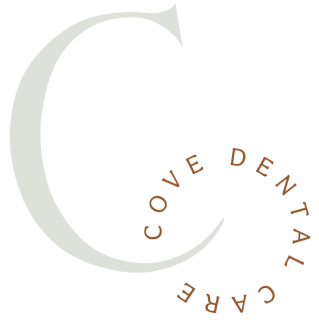2104 Old Spartanburg Rd Greer, SC 29650

Tooth Decay Solutions In Greer, SC
What Is Dental Decay?
To delve into the topic of dental decay, it's essential to understand the composition of a tooth. The outermost layer is enamel, a crystalline substance primarily composed of calcium and phosphorus ions bonded in a mineral form called hydroxyapatite. Enamel is tightly connected to dentin, the second layer, which is slightly softer and also contains hydroxyapatite, albeit in a lower concentration. Beneath dentin lies the dental pulp, housing the tooth's nerve and blood vessels.
Dental decay occurs when there's a loss of calcium and phosphorus ions from the tooth's mineral structure, leading to a reduction in its structural integrity. This demineralization process is triggered by exposure to acidic substances.
What Causes Decay?
How Do I Prevent Tooth Decay?
Brush regularly
Eat a nutritious and balanced diet:
Limit your intake of sugary foods and drinks:
Drink water from the tap:
Visit your dentist regularly:
Ensure to schedule regular dental checkups and professional cleanings with your dentist at least twice a year. During these visits, you can inquire about additional preventive measures like dental sealants and supplemental fluoride treatments.
Additionally, refrain from habits such as teeth grinding, which can lead to the wearing down of the outer enamel layer, thereby heightening the risk of dental decay.
How Do You Treat Tooth Decay?
How Did I Get a Cavity On a Tooth That Already Has a Filling or Crown On It?
Unfortunately, it's possible to develop a cavity even on a tooth with an existing filling or crown. This can occur due to issues such as leakage around the dental restorations. The pressure from chewing and teeth grinding can also contribute to the wearing down, chipping, or cracking of fillings. Additionally, poorly fitting crowns and inadequate oral hygiene practices may contribute to tooth decay.
Over time, these factors can create gaps, allowing bacteria to infiltrate beneath the filling or crown. Decay may then begin around the edges of the dental restorations and gradually spread underneath, potentially leading to cavities. To reduce the risk of dental decay and cavities, it's essential to maintain good oral hygiene habits and schedule regular visits to your dentist for checkups and cleanings.
The Importance of Preventing Tooth Decay
Preventing tooth decay is essential for maintaining optimal oral health and overall well-being. Dental caries, also known as cavities, can have significant effects on oral health and quality of life, making prevention crucial.
Firstly, preventing tooth decay helps preserve the structural integrity of teeth. Decay occurs when bacteria produce acids that demineralize the enamel, the protective outer layer of the teeth. Regular brushing, flossing, and a healthy diet low in sugary and acidic foods can prevent this demineralization process. By safeguarding the enamel, individuals can avoid the need for restorative treatments like fillings or crowns, ensuring that their natural teeth remain strong and functional.
Secondly, preventing tooth decay contributes to oral comfort and well-being. Untreated cavities can lead to tooth sensitivity, pain, and discomfort, affecting eating, speaking, and daily activities. By practicing effective oral hygiene and following preventive measures, individuals can spare themselves unnecessary pain and maintain a high level of oral comfort.
Furthermore, preventing tooth decay supports overall systemic health. Poor oral health has been linked to systemic conditions like cardiovascular disease, diabetes, and respiratory infections. By preventing tooth decay, individuals reduce the risk of bacterial entry into the bloodstream, minimizing the potential for health complications and promoting a healthier overall body.
Preventing tooth decay also helps control healthcare costs. Treatments for advanced tooth decay can be expensive, involving procedures such as root canals, extractions, and restorative work. By focusing on prevention, individuals can reduce the need for extensive dental interventions, thus saving on both financial and emotional costs associated with dental procedures.
Lastly, preventing tooth decay fosters a positive attitude towards oral health and self-care. Establishing good oral hygiene habits from a young age instills habits that carry into adulthood. When individuals see the positive outcomes of their preventive efforts, such as cavity-free dental check-ups, they are more likely to continue prioritizing oral health throughout their lives. This positive reinforcement promotes a proactive approach to oral care, ensuring long-term dental health.
In conclusion, preventing tooth decay is fundamental for maintaining healthy teeth and gums. By preserving tooth structure, enhancing comfort, supporting systemic health, controlling healthcare costs, and promoting positive self-care habits, individuals can enjoy the benefits of a strong, vibrant smile that contributes to their overall well-being and quality of life.

